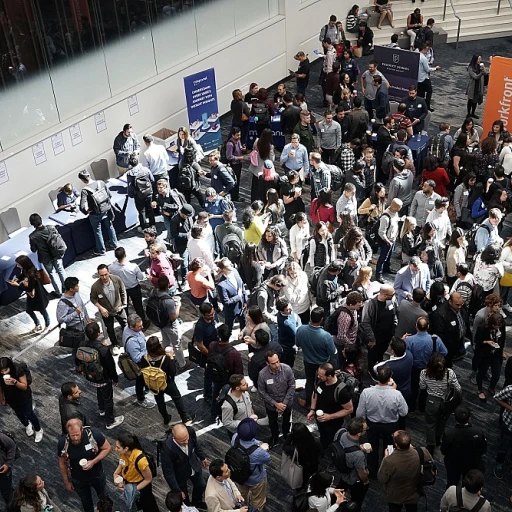
Understanding the role of AI in performance reviews
The Shift Toward Data-Driven Performance Reviews
Artificial intelligence is reshaping how organizations approach performance reviews. Traditionally, managers and HR teams relied on manual processes and subjective judgment to evaluate employee performance. This often led to inconsistencies and missed opportunities for employee development. Today, AI-powered tools are helping companies create more effective review templates, streamline the review process, and provide actionable feedback to employees and managers alike.
Why AI Matters in the Review Process
AI brings a new level of objectivity and efficiency to performance management. By analyzing large volumes of employee data, AI can identify trends, highlight areas for improvement, and suggest personalized goals. This helps managers and employees focus on professional development and team success, rather than just ticking boxes on an evaluation form. AI also enables more frequent and meaningful reviews, moving beyond the traditional annual performance review to quarterly or even real-time feedback cycles.
- Automated evaluation templates reduce administrative work
- Personalized feedback supports employee growth
- Data-driven insights help managers set relevant goals
- Consistent review templates ensure fairness across teams
Enhancing the Employee Review Experience
With AI, the review process becomes more transparent and engaging for both managers and employees. AI-powered review templates can be customized for different roles, departments, or levels of experience, making it easier to align employee goals with organizational objectives. This approach not only supports ongoing improvement but also helps identify high-potential team members and areas for targeted development. For a closer look at how AI is improving performance review templates, check out this resource on enhancing HR processes with AI.
As organizations continue to adopt AI in HR, the focus is shifting from simply measuring performance to actively supporting employee success. The next sections will explore the essential elements of a modern review template, how AI personalizes feedback and goal setting, and best practices for integrating AI into your performance management strategy.
Key elements of a modern performance review template
Building Blocks of a High-Impact Review Template
Modern performance review templates are evolving fast, especially with artificial intelligence reshaping the review process. A well-designed template is more than a formality—it’s a tool that helps managers and employees have meaningful conversations about job performance, professional development, and areas for improvement. The right template can streamline annual performance reviews, quarterly performance check-ins, and ongoing employee evaluation, making the process more transparent and actionable.
- Clear Performance Criteria: Effective templates outline specific, measurable criteria for evaluating employee performance. This helps both managers and team members understand what’s expected and how success is defined for each role.
- Structured Feedback Sections: Templates should include dedicated areas for both positive feedback and constructive suggestions. This structure encourages balanced reviews and supports employee growth.
- Goal Setting and Tracking: Including sections for setting and reviewing goals ensures that employees and managers are aligned on priorities and professional development objectives throughout the year.
- Development and Training Opportunities: Highlighting opportunities for learning and improvement helps employees see a clear path for advancement and skill-building.
- Self-Assessment: Allowing employees to reflect on their own performance fosters engagement and accountability in the review process.
- Manager and Peer Input: Gathering feedback from multiple sources, including peers and managers, provides a more comprehensive view of employee contributions and team dynamics.
- Action Plans: Every review template should end with actionable next steps, helping employees and managers work together on continuous improvement.
Many organizations offer free performance review templates or evaluation forms in Microsoft Word or other formats, but the most effective templates are tailored to your team’s unique needs. AI-powered solutions can help customize templates for different job roles, departments, or review cycles, making the process more relevant and efficient.
For a closer look at how AI is transforming performance management templates, check out this resource on enhancing HR processes with AI-driven performance improvement plan templates.
Remember, the right template is a foundation for fair, actionable, and motivating performance reviews. It supports managers and employees in having open conversations about work, goals, and professional development, and it sets the stage for ongoing improvement throughout the year.
How AI personalizes feedback and goal setting
Personalized Feedback: Moving Beyond One-Size-Fits-All Reviews
AI-driven tools are transforming the way managers and employees experience the performance review process. Traditional review templates often rely on generic feedback and static goals, which can leave employees feeling undervalued or misunderstood. By leveraging artificial intelligence, organizations can now generate feedback that is tailored to each employee’s unique contributions, strengths, and areas for improvement.
AI analyzes a wide range of data sources, such as project outcomes, peer reviews, and even communication patterns, to provide more nuanced and actionable feedback. This means that each employee review becomes a dynamic conversation, focusing on real achievements and specific opportunities for growth. The result is a more engaging review template that supports both professional development and job satisfaction.
Goal Setting: Aligning Individual and Team Objectives
One of the key benefits of integrating AI into performance management is its ability to personalize goal setting. Instead of assigning generic objectives, AI-powered systems suggest goals that align with both the company’s strategic priorities and the employee’s role, skills, and past performance. This ensures that annual performance reviews and quarterly performance check-ins are more meaningful and relevant.
For example, AI can recommend development opportunities or areas of improvement based on previous evaluation forms and ongoing work results. This helps managers and employees co-create goals that are challenging yet achievable, fostering a sense of ownership and motivation. For more insights on building an effective talent mobility strategy with artificial intelligence, check out this resource on talent mobility strategy with AI.
Templates That Adapt Over Time
AI doesn’t just personalize feedback and goals at a single point in time. It continuously learns from each review cycle, adapting templates and evaluation criteria to reflect evolving business needs and employee development. This means your performance review templates become smarter and more effective with each use, helping managers and team members focus on what truly matters for long-term growth.
- Employee evaluation templates can be customized for different roles or departments
- Review templates in Microsoft Word or other formats can integrate AI-powered suggestions
- Templates can highlight free resources or recommended actions for improvement
By making the review process more personalized, AI helps organizations foster a culture of continuous improvement and engagement. Employees feel seen and supported, while managers gain actionable insights to guide professional development and team success.
Overcoming bias in performance evaluations with AI
Reducing Bias in Employee Evaluations with AI
One of the most persistent challenges in the performance review process is bias. Traditional employee evaluation forms and review templates often reflect unconscious preferences, leading to unfair assessments. AI-powered tools can help address these issues by introducing data-driven objectivity into the review process.
- Consistent Criteria: AI systems use standardized templates and evaluation forms, ensuring that every employee is assessed using the same performance metrics. This reduces the risk of subjective judgments that can creep into annual performance or quarterly performance reviews.
- Analyzing Patterns: By analyzing large volumes of feedback and performance data, AI can identify trends that may indicate bias, such as consistently lower scores for certain teams or job roles. This helps managers and HR professionals spot areas for improvement in their review process.
- Objective Feedback: AI-generated feedback is based on measurable outcomes and employee goals, not personal opinions. This helps managers provide constructive, actionable feedback that supports professional development and team growth.
When using AI in performance management, it’s important to regularly review and update your templates and evaluation forms. This ensures that your process remains fair and relevant as your organization evolves. Managers and HR teams should also be trained to interpret AI-generated insights, so they can use them to support employee development and areas of improvement, rather than relying solely on automated suggestions.
Ultimately, integrating AI into your employee review process can help create a more equitable and transparent environment. By focusing on objective data and clear performance goals, organizations can foster trust and drive improvement across all team members.
Integrating AI-powered analytics into your review process
Unlocking Actionable Insights with AI-Powered Analytics
AI-powered analytics are transforming the way organizations approach the performance review process. By leveraging advanced data analysis, HR teams and managers can move beyond traditional review templates and gain a deeper understanding of employee performance and development needs. AI tools analyze vast amounts of data collected from employee evaluations, feedback, and goal tracking. This enables organizations to identify trends, patterns, and areas for improvement across teams and departments. Instead of relying solely on annual performance reviews, managers can access real-time insights that help them support employees throughout the year.- Spotting strengths and weaknesses: AI can highlight which team members consistently excel in their roles and where others may need additional support or training.
- Tracking progress on goals: Automated analytics monitor employee progress against set goals, making it easier to adjust objectives or offer targeted feedback when necessary.
- Identifying skill gaps: By comparing employee performance data, AI can reveal skill gaps within teams, informing future training and professional development initiatives.
- Enhancing fairness: Data-driven evaluation reduces the risk of bias, ensuring that reviews are based on objective performance metrics rather than subjective opinions.
Best practices for implementing AI in HR performance reviews
Building Trust and Transparency in AI-Driven Reviews
Introducing AI into your performance review process requires careful planning and open communication. Employees and managers need to understand how AI supports the evaluation process, from generating feedback to identifying areas for improvement. Transparency about how the technology works and how data is used helps build trust, making it easier for teams to embrace new review templates and tools.
Training Managers and Employees for Success
For AI-powered performance management to be effective, both managers and employees should receive training on the new systems. This includes understanding how to use AI-generated feedback, set meaningful goals, and interpret analytics. Providing clear guidance and resources, such as a free template download or a Microsoft Word evaluation form, can help everyone get comfortable with the updated process. Ongoing support ensures that the review process remains fair and constructive throughout the year.
Ensuring Data Privacy and Ethical Use
Protecting employee data is critical when using AI in performance reviews. Organizations should implement strict data privacy policies and regularly review how employee information is collected, stored, and analyzed. Ethical guidelines must be established to prevent misuse of data and to ensure that AI-driven evaluations remain objective and focused on professional development.
Continuous Improvement and Feedback Loops
AI systems in HR are most effective when they evolve with your organization’s needs. Regularly gather feedback from team members and managers about the review templates and the overall evaluation process. Use this input to refine your templates, adjust goals, and enhance the employee experience. Quarterly performance reviews can be a good opportunity to assess what’s working and where further improvement is needed.
Aligning AI Tools with Organizational Goals
Choose AI solutions that align with your company’s performance management strategy. Whether you’re focusing on annual performance, employee development, or team collaboration, ensure that your AI tools and review templates support these objectives. Integration with existing HR systems and workflows is essential for a seamless review process and meaningful employee evaluations.













